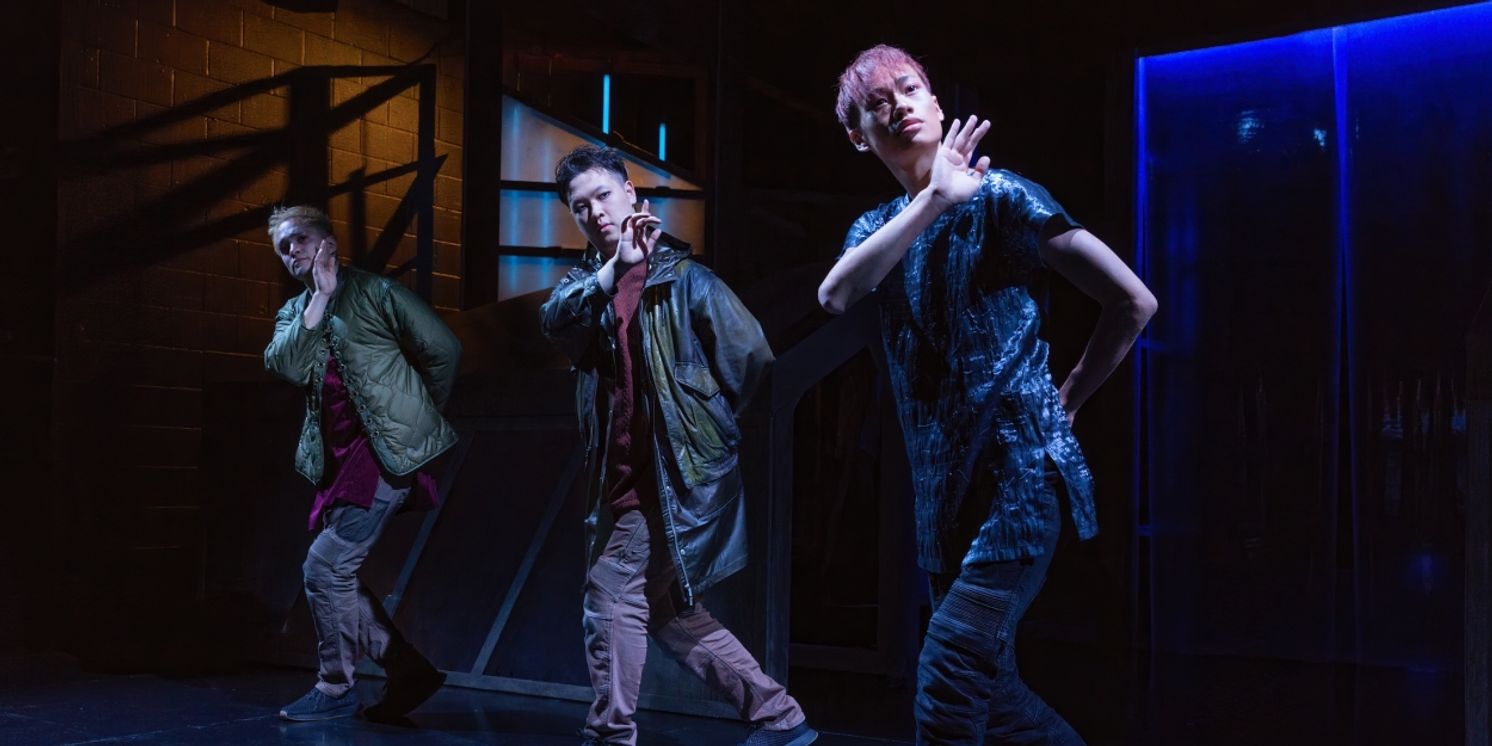Review: COCKROACH at Tarragon Theatre
Tarragon's season-opener is a compelling look at what's underfoot.

We regularly use "cockroach" as dehumanizing language for the Other, denying personhood to marginalized groups in an attempt to justify their oppression or extermination. Nobody (or almost nobody) tells the story of the humble bug considered an intruder in humans' space. But cockroaches preceded humanity's reign on this planet, and will likely tenaciously outlive us, particularly if we destroy ourselves via our own hubris.
That's the central metaphor of Ho Ka Kei (Jeff Ho)'s Cockroach, now playing at Tarragon Theatre, a scathingly funny (and often just scathing) screed that pits an angry, wisecracking insect (Steven Hao) against the ghost of William Shakespeare (Karl Ang) in a fight for the soul and identity of a young Chinese immigrant to Canada (Anton Ling). The play posits that there is much value in letting untold stories be heard, but also that it's not that simple when a culture has already assigned value to certain types of stories and colonized the very way we think about ourselves.
Directed by Mike Payette and set on an intriguing backdrop of geometric white plastic structures that function as transport, cage, and jungle gym (set and costume design by Christine Ting-Huan Urquhart), Ho Ka Kei's play is mostly formed around a series of three interconnected monologues where the Bard and the bug bicker over the conflicted, overwhelmed boy.
Hao is terrific as the titular Cockroach, who comes out blazing (quite literally, on a catnip blunt). His insouciant flippancy gives way to a blistering anger as he tells a life story of travel, growth, and consumption. He moves from North America to Hong Kong and back again, falls in doomed love with a lobster, and cheerleads the young man in whose diaper he once found refuge. In the background, Ang gives an intensely committed silent performance as the roach's headstrong music-loving mama, with Ling scoring laughs as the would-be lobster lover. Creative imagery abounds in the storytelling, with Ting-Huan Urquhart doing much to suggest a cockroach with a simple jacket and brown colour scheme.
The tenor and tone of the play changes sharply with The Bard's takeover, as he reminds us how much our culture is steeped in his contributions. Ang imbues him with a layered take on a cocky swagger, his insistence that his influence will never release its hold warring with a seeming desire to finally fade away. As the Cockroach and Bard try to talk rings around each other, the lightning-quick script teems with references from ancient literary touchstones to modern political protests. It's gleeful, twisting fun, occasionally interrupted by ominous emissions of sound design (Deanna H. Choi) that suggest dangers to come.
While the unconventional aspects of the show are a large part of its joy and success, they also make it more difficult to tie all three threads together. Part of the point here is that the others are so loud that Boy has a difficult time breaking through and hearing his own voice. However, that does mean that the audience largely has to rely on these external internal voices for a concept of the character the play is really about, who nevertheless remains something of a mystery. The flashes we get of his story, while emotion-rich, are a long time in coming, and less dynamic in comparison to the literary death match being played out around him. A chance to get to know more about him and his story would enrich the experience in a powerful way.
Maybe, though, that means there's just another story left to tell. As it is, Cockroach is a confident, thoughtful and compelling show that will make you think twice about what (or who) we might be crushing under our feet.
Photo of Karl Ang, Steven Hao, and Anton Ling by Joy von Tiedemann
Reader Reviews
Videos

